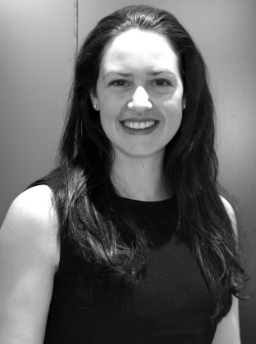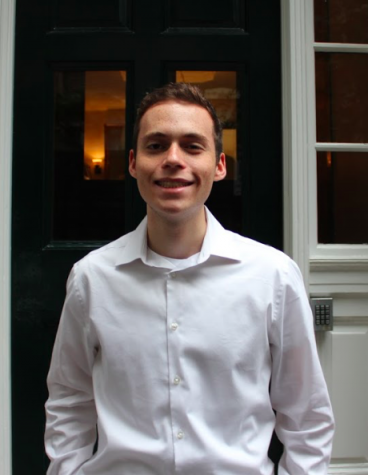Interview with Ms. Davis
The Rampage has secured an interview with Ms. Abby Davis, Ramaz’s newest member of the college guidance office. Ms. Davis came to Ramaz after six years of working as the Associate Director of Admissions at Cooper Union. Ms. Davis is excited to be working at Ramaz because she will be able to interact with students in the college process on a more personal level than she could on the admissions side of the process.

Zach Buller: What information did you learn at Cooper Union that you can apply to your college advising at Ramaz?
Abby Davis: The skills that come with college essay writing. With six years reading engineering, architecture, and art applications, I have learned a lot about essays, both in their specific and general forms. The essay is super important in the college process, as it is the only opportunity for the student to speak in his or her own voice. I believe that the sheer number of both good and bad essays that I have read has taught me common mistakes that students make and opportunities that students take to make themselves stand out more from the crowd.
An important tip that I would add is that you have to write a new essay for every college, especially when it comes to the “Why [insert college here]” essay. If the essay makes sense by substituting the name of one college in for another, then the essay is too generic. Make sure you conduct research about the school and write about a specific program or major unique to the school that makes you excited about the school. Show that you have a specific passion for that college. Otherwise, the essay readers might think that you don’t actually want to go to that school. People get so overwhelmed with brand names that they forget that every school is very different.
ZB: In your opinion, what constitutes a “good” college application?
AD: I think that every college wants to see students doing well and getting good grades, but not everyone has the ability to get straight As in the hardest classes. I can tell you from experience that the most important thing that a college wants to see on a transcript is an upward trend. Students who show improvement and challenge themselves over time are very desirable to colleges.
For the rest of your holistic application, part of making it “good” is how you present your narrative. It’s all about spinning the best narrative about yourself. Make sure that you stay consistent within the different parts of your application that the admission officer who reads your application can confidently state your specific interests and how you developed them.
One myth I would like to debunk is the emphasis on leadership. I think the buzz word nowadays is “leadership”- that the most important thing that one needs to get into college is leadership positions. If everyone needed to be a leader to get into college, then there would be no one to take orders from those leaders, and the leaders would be leading no one! Not everyone needs to be a leader in everything. The best way to show yourself off to colleges is to advertise your interests and demonstrate that you will be able to integrate yourself into the community on campus. This is what colleges want to see.
For the common app general essay, I would suggested narrowing down your topic to a single specific time. This way, the essay becomes much more impactful for the reader.
ZB: Would you give different advice to a non-motivated and a highly motivated student?
AD: There is some basic advice which is going to be the same for every student: proofread, craft your narrative, write you essay, etc. For students who are less-motivated, I will work harder to getting them excited about college and isolating what it is that they are looking forward in this next change in their life. There is usually a reason why some students are less-motivated and are not excited and ready to apply to college, so working to isolate that reason and discussing it is key. For highly-motivated students, the advice becomes more specific to the school to which he or she is going to apply.
ZB: What is your advice to a freshman in terms of the college process?
AD: Don’t do anything specific yet. You are just starting high school! Freshman year can be very difficult for many students given the major life transition. Classes are much harder than they were in the past and students begin to feel the daunting pressure of the impending college application. The only thing I would say for a freshman in high school is to try to establish basic good study habits that will suit you not only in high school but also in college. Working on organizational skills, making schedules, taking good notes, and the like will build the baseline needed to become a more independent student when it comes time to apply to college.
ZB: Do you believe the college process should begin in sophomore year?
AD: No. For most people, it is too early. Many students’ GPAs might change from sophomore to junior year, so you do not necessarily have an accurate academic record at the start of your sophomore year. It is too early to be taking any standardized tests which are intended for second-semester juniors. Rather than focusing on college, a sophomore should be focusing on being a good student and building on the students habits and behaviors he or she has been developing since the start of high school.
I understand that many sophomores begin to become anxious about the college process and are filled with questions. I do think that we should make a bigger effort to make sophomores feel comfortable to approach the college advisors with questions, but we have to remember that high school is not just a calculated effort to get into college. Focus on your grades because that is the most important thing as a sophomore in high school.
Also, one of the main components of the college application is the ability to build your narrative. A sophomore is not even halfway through high school, so no sophomore’s “high school narrative” is near complete. You need time to fully build and develop a strong narrative that you can present to colleges.
ZB: What advice do you give students regarding amount of times/when to take SAT/ACT?
AD: That’s a tricky one. You definitely want to have completed a couple of practice tests by spring of your junior year. This is a good time for most students who are on a typical track. For super advanced students, they should probably start a little bit earlier. Taking the March or the May SAT in their junior year is a good start. October of your senior year is the absolute last time to take it. Taking the SAT more than 4 times is not the best use of your time. You need to have enough time to progress in your test taking skills, but also make sure to take them early enough so that you can strategically make a college list, and know that you have more time to continue if you need.
ZB: The Ramaz college office emphasizes student “fit” for colleges. How do you determine whether a student is a good “fit” for a school? What if a student doesn’t know where he or she wants to go?
AD: To determine a general fit, I think you have to look at the student’s interests- location, size, distance from family, Jewish life, school spirit, etc. If students do have specific extra-curricular/academic interests, then try to tailor to colleges that offer programs that relate to them. Colleges today offer many majors and activities.
Ideally, students should be able to determine fit for themselves. By going to campus for an organized tour/event, speaking with students, and seeing things that are of interest to you, a student can get a solid feel of a campus. A student would have to investigate a little bit deeper than seeing the quads and the brick buildings on campus, but part of the decision should be instinctual. You should be able to go to a college and feel, “Ok, this school isn’t right for me,” for example.
For a student who has no idea where to start in terms of the college search, general questions are crucial. How far away the student wants to be from his or her family or student body size are usually great parameters to begin narrowing down choices.
ZB: What do you say to the student who wants to apply to a school that you believe is beyond his or her reach?
AD: I say, “Tell me what it is that you want about the school that is not the name. Well if you like this one, then you should also consider that one.” Generally, Ramaz students apply to a small handful of the same schools each year, so one of the challenges is when a student isn’t the right fit for one of these usual schools. I want to give students the opportunity to venture beyond the norm and search for a school that is right for him or her, regardless of the name or ranking of the college. In unfortunate circumstances, I may have to reach out to these students and have tough conversations with them, informing them that I would advise against applying to a specific school.
ZB: Have you made/do you plan to create relationships with admissions officers of any specific schools?
AD: Yes. Because of my previous job at Cooper Union, I know advisors at a lot of the NYC schools, including Barnard, NYU, Fordham, and Syracuse. Part of being a college officer is forming relationships with officers from other schools, but as an advisor I am now on the high school side, so I will be going out and forming different relationships with officers from many schools.
I am going to professional networking events for high school college advisors (this week one with representatives from Harvard, Duke, and UChicago) to learn about the schools and any changes within them. At college night, I was talking to the representative from Brandeis who was new as well, and we were comparing our experiences. Building relationships with people takes time, and as a new college advisor I am ready for the opportunity.
ZB: How often do you want to meet with your advisees?
AD: I think it would be great to meet for the first time after completing first semester of junior year. By then, the student has completed 5 semesters of high school has a transcript that fairly accurately represents the student’s academic achievements. I would also like to meet with students at least twice before the family meetings begin at the end of junior year.
Other than these two meetings, I am here and available for any student to meet with me at any time. Totally come to my office! I would love to have students come to me as many times as they want to discuss anything related to college and beyond.
___
We welcome Ms. Abby Davis to Ramaz and wish her much success in her new role.

Zach Buller has been an active member of The Rampage staff since the first week of his freshman year, and now serves as Co-Editor-in-Chief. In his four...


